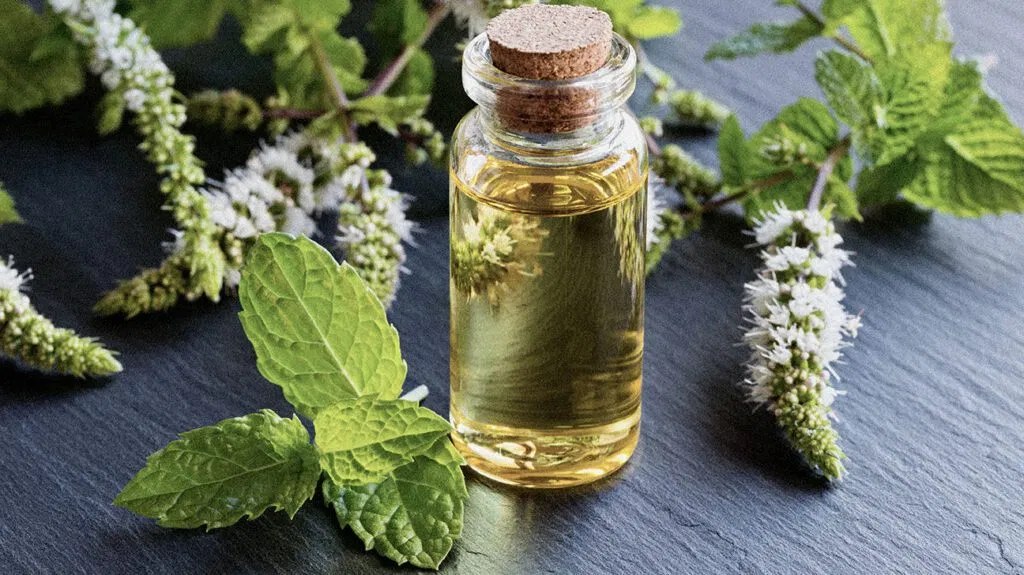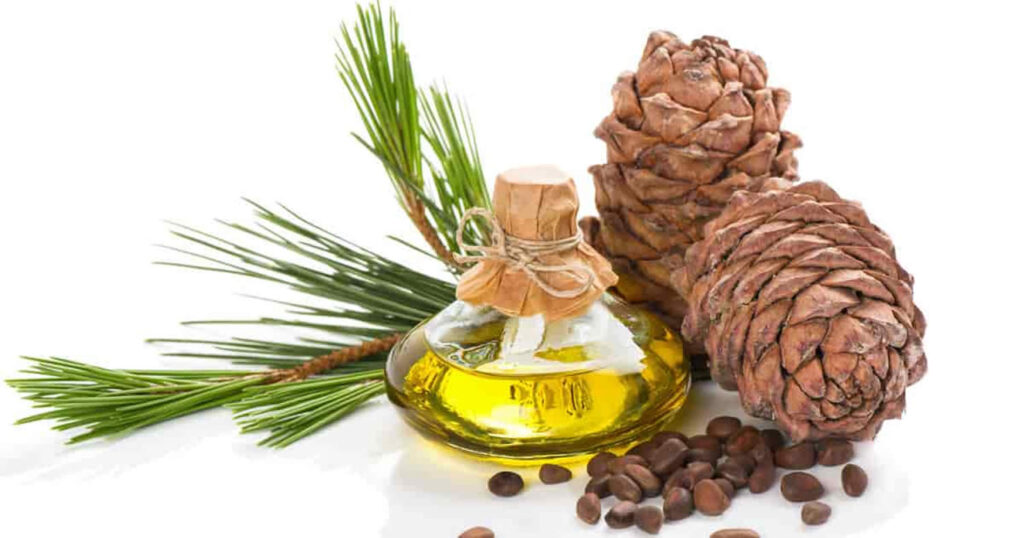Having a runny nose is a common problem. Also known as rhinorrhea, it refers to excessive drainage generated by the adjacent tissues and the blood vessels in the nose. [1]
The drainage can vary from thick mucus to clear fluid, depending on the severity of your illness. Sometimes, the clear discharge may run out of your nose and down the back of your throat. [2]
A runny nose is highly annoying but easy to treat. You can also treat this condition at home using essential oils.
Essential oils can help you deal with a runny nose and its other symptoms. In addition, some of them have antiviral and antibacterial properties. Therefore, they can help you to get rid of rhinorrhea.
Essential Oils for Runny Nose
1. Eucalyptus Oil
Eucalyptus oil originates from the eucalyptus tree. This essential oil can help clear your nasal passage.
Eucalyptus essential oil contains a chemical named citronellal. This ingredient is rich in antimicrobial, anti-inflammatory, and analgesic properties. [4]
Eucalyptus oil is a strong expectorant. Thus, it can help clear out any harmful microorganisms from your body. [5]
Due to its strong aroma and cooling sensation, the oil can unclog even the most stuffy nasal passages.
2. Peppermint Oil
Peppermint oil is rich in antiseptic, anti-inflammatory, antibacterial, antispasmodic, and sedative properties. Therefore, this oil is quite effective in treating the respiratory condition. [6]
Peppermint has a component named menthol. Thus, it can work as an excellent pain reliever. Its antibacterial properties help treat mucus and phlegm. [7]
Peppermint essential oil can also treat colds, coughs, allergies, sinusitis, etc.
RELATED: Peppermint Oil for Hair: 8 Reasons to Use
3. Ginger Oil
Ginger essential oil is derived from ginger root. This oil contains all the therapeutic properties of ginger. [8]
Ginger oil is rich in anti-inflammatory, antioxidant, antinausea, and anticancer properties. Hence, this oil can effectively relieve many respiratory issues.
If you have a runny nose, massaging or inhaling ginger oil may help eliminate the discomfort.
RELATED: 10 Health Benefits of Ginger Oil That You Should Know About
4. Lemon Oil
The citrusy scented lemon oil is quite effective in treating various illnesses.
Since ancient times, lemon oil has been used to treat several respiratory diseases such as a runny nose. It’s because the oil contains anti-inflammatory properties. [9]
This essential oil contains many antibacterial, antifungal, antimicrobial, and detoxifying components. The oil can also boost respiratory health.
RELATED: 10 Ways Lemon Oil Can Benefit your Health
5. Cedarwood Oil
Cedarwood essential oil originates from the leaves of the cedar wood. The oil is quite effective in soothing cold, cough, and runny nose.
The oil is famous as an expectorant as it can loosen phlegm. But, it would help if you did not confuse it with a stimulant for the respiratory system.
Cedarwood oil is a sedative. Thus, it can soothe a runny nose, cough, and even watery eyes. [10]
The oil can remove toxins from your body by urination, thanks to its diuretic nature. [11]
Due to its sedative nature, you can get rid of the discomfort and sleep properly.
6. Camphor Oil
Camphor oil is extracted from the Cinnamomum tree. This essential oil has been treating so many underlying problems associated with rhinorrhea. [12]
Camphor oil can be a good choice if you have a runny nose due to the sinus. [13]
Due to its medicinal properties, camphor oil can help relieve a runny nose, congestion, blockage, and headaches.
7. Niaouli Oil
Thanks to its antibacterial properties, Niaouli oil can effectively treat a runny nose. [14]
The oil is rich in a component called cineole. [15] This compound can improve circulation to the brain and tissues for a faster and more oxygenated recovery.
Niaouli oil can boost your immune system while helping you to get rid of a runny nose.
How to Use Essential Oils for Runny Nose
Aromatherapy is a popular method for treating a runny nose. But, a massage can also help to get rid of this discomfort.
Let’s have a look into these easy methods of using essential oils for rhinorrhea:
Method 1:
- Mix 2 drops of eucalyptus and camphor oil with one drop of peppermint oil.
- Pour the oil mix into a glass bottle and stuff a cotton ball inside it.
- Close the bottle tightly, allowing all the vapors to collect and collide in the bottle.
- Inhale the aroma all day around whenever you want.
Method 2:
- Mix 5 drops of niaouli oil, four drops of camphor oil, three drops of eucalyptus oil, two drops of lemon oil, and 1 ounce of jojoba oil.
- Massage the oil on your temples, chest, throat, around your nose, and behind the back.
- Take your hands closer to your nose and breathe deeply.
Precautions to Follow
Natural always doesn’t mean safe. Essential oils are usually harmless but can have a negative impact if misused.
You must maintain the following safety measures to get the best out of essential oil:
- Always buy essential oils from a reputed supplier.
- Read the label carefully before you use the oil.
- Dilute the essential oil with a carrier oil before any topical application. Some excellent carrier oils include coconut oil, jojoba oil, almond oil, etc.
- Apply a little essential oil to your skin for a patch test. In this way, you will find out if the oil suits you.
- Ask for an expert’s advice before using any essential oil if you’re pregnant.
Causes & Symptoms
Anything inflamed and irritated the nasal tissues can cause a runny nose. [3]. Common colds, allergies, influenza, and sinus can trigger a runny nose.
Some common causes of a runny nose include:
- Common cold.
- Sinus infection.
- Allergies.
- Influenza.
- Dry air.
- Drug addiction.
- Overuse of nasal spray.
- Medications.
- Hormonal changes.
- Smoking.
- Pregnancy.
- Respiratory syncytial virus (RSV).
A runny nose is associated with excess mucus production by the nasal lining. As the output is faster than usual, it may clog the nasal cavity. As a result, you may experience pressure and minor facial pain.
Let’s have a look at some of the other symptoms of a runny nose:
- Excessive drainage of mucus.
- Blocked airways.
- Inflammation in nasal passages.
- Facial pain.
- A sore throat.
- No sense of smell.
- Fever.
- Headaches.
- Fatigue.
- Shortness of breath.
- Body aches.
- Dizziness.
When to Take a Doctor’s Appointment?
A runny nose is usually not deadly and clears up on its own. But, the symptoms are so annoying and uncomfortable.
The symptoms can be severe in some rare cases, particularly in children. You must see a doctor if you see the following signs:
- Rhinorrhea lasts more than ten days.
- You have a high fever.
- Yellow and green nasal discharge.
- Blood with nasal discharge.
- Your kid is less than two months old and has a runny nose.
End Note
Essential oils can be a safe and cost-effective option to get rid of a runny nose.
Some home remedies also treat a runny nose if you don’t want to take chemical-infused medicines.
You should also bring some changes to your lifestyle and diet. For example, drink a lot of water. It will help clear your nasal airways.
If you’re a smoker, it’s time to quit this bad habit.
Do not entirely rely on these essential oils. None of them are meant to cure you completely. So, if the condition becomes complicated, seek a medical emergency.
READ NEXT: 20 Best Essential Oils for Cold Sores Relief: Benefits and User Guides






